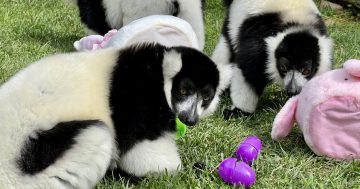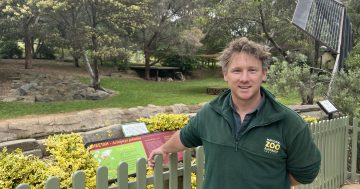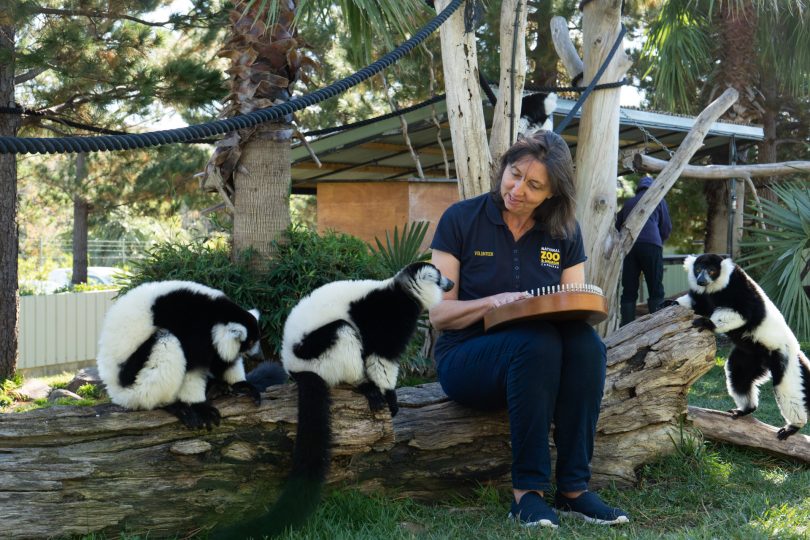
Harpist Alison Ware plays to Ruffed Lemurs at the National Zoo. Photo: Dominic Giannini.
From Madagascar to the orchestra, the lemurs at the National Zoo get front row seats to harpist Alison Ware every fortnight as she strikes a chord with the animals.
Alison performs for the animals as part of the zoo’s enrichment program, with the soothing tones of the harp reducing the anxiety and stress animals in captivity can experience.
“Research shows that music is wonderful for animals,” she said.
“It helps relax them, it is soothing and helps provide comfort. The animals have really enjoyed me playing here.”
Like any good performer, Alison adapts her routine on the day depending on how the animals react to her music, just as she would in her role as a clinical musician at the Canberra Hospital.
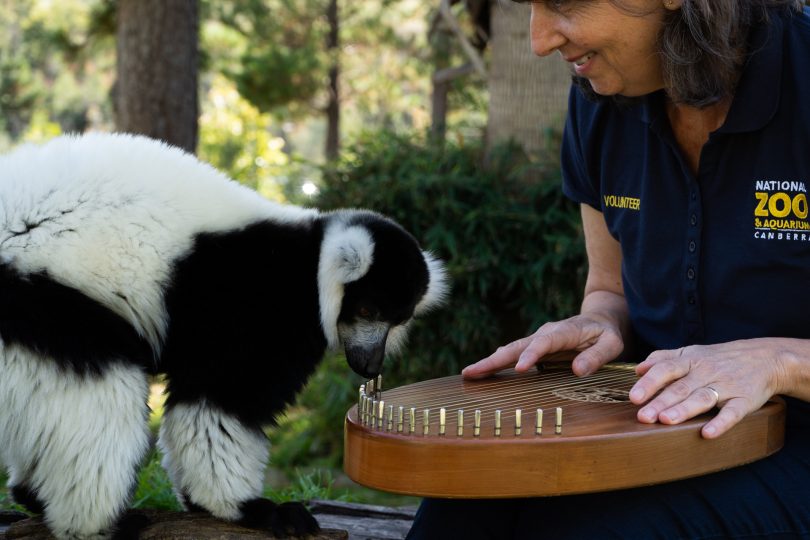
Ruffed Lemur at the National Zoo gets up close to Alison Ware’s harp. Photo: Dominic Giannini.
“It is a different way of applying music and with the animals, we adjust the music to what we see,” she said.
“I don’t necessarily come in with a set repertoire; I will sit quietly and watch the animal and then try a particular key or chord.
“I’ll know if that is right by some of their reactions, so I am adjusting the music to the animals and what they need at that time.”
As for her biggest fan? That would be Jake the lion, who turns out to be a lover of classical music.
“He will come down and sit and listen, and then put his face to the sun and settle,” Alison said.
“The typical response we see from the animals is curiosity, and then they’ll move around, settle and fall asleep.”
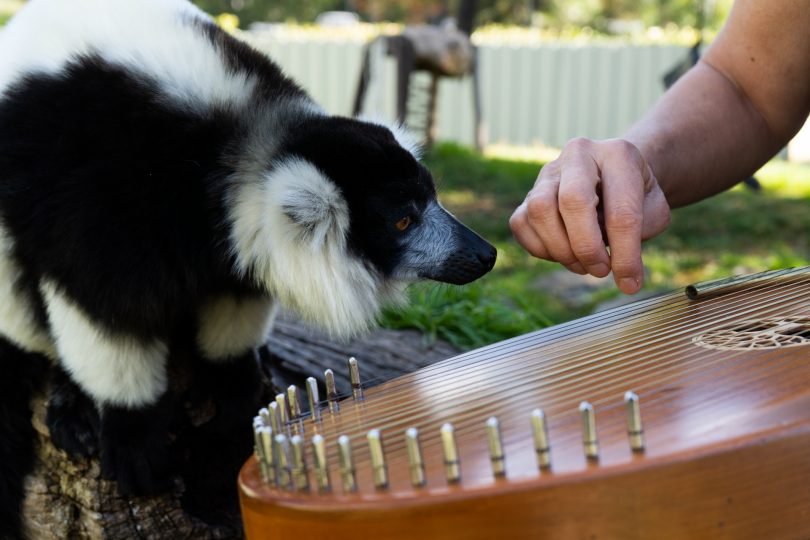
Ruffed Lemur at the National Zoo gets up close to Alison Ware’s harp. Photo: Dominic Giannini.
Primate keeper Georgia Clark, who has been working at the zoo for the past nine years, said the music gets an excellent response from the primates who come over and sit as close as they can to listen.
“We find it has quite a calming effect on most of them. It is an important part of our enrichment program at the zoo,” she said.
The enrichment program helps keep animals at the zoo engaged and includes special treats and toys and food puzzles so they learn how to forage and earn their food like they would in the wild.
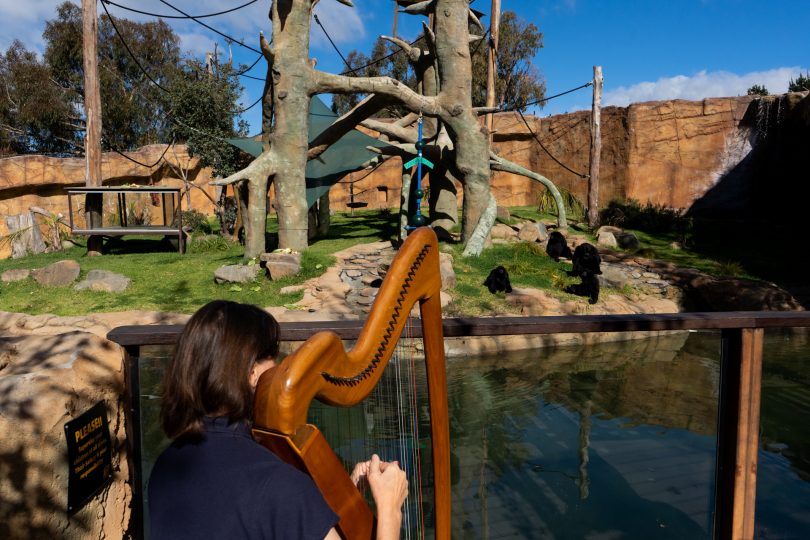
Harpist Alison Ware plays to monkeys at the National Zoo. Photo: Dominic Giannini.












